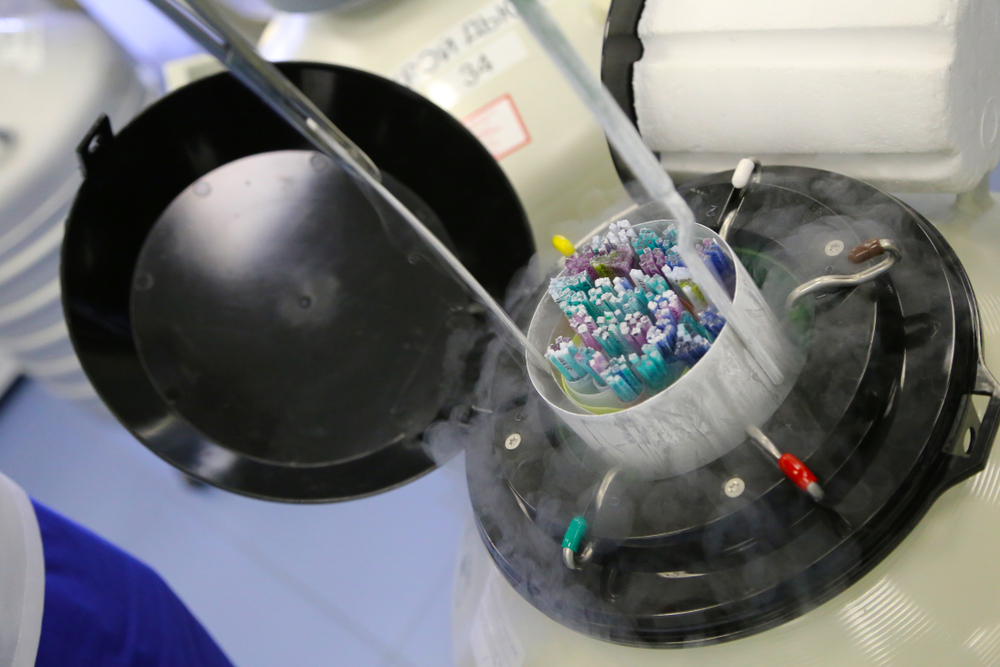The Alabama Supreme Court’s decision to elevate the status of frozen embryos to that of living children has sparked a contentious debate, with the implications of the decision affecting medical practices, patients, family law, and the very fabric of societal norms and values.
The recent decision by the Alabama Supreme Court, which accorded frozen embryos the same moral and legal status as living children, has ignited concern across the United States of America (USA) and surprise internationally. This groundbreaking ruling, unique since the invention of in vitro fertilisation (IVF), brings to the fore intricate and profound questions about the beginning of human life and the point at which the rights of an unborn child overshadow the rights of parents, society, and fertility clinicians.
We are two Australian-based doctors who, in this article, survey the legal framework presently operative in conservative states such as Alabama and unravel the ethical and legal dilemmas that may emerge should the notion of embryonic personhood gain acceptance.
Embryonic personhood is the ethical and/or legal principle asserting that human embryos are recognised as persons with rights from the moment of fertilisation or conception. This viewpoint maintains that an embryo deserves the same moral, ethical, and legal protections as a living child or adult, irrespective of its developmental stage. Embryonic personhood is deeply embedded in debates surrounding the commencement of human life, intersecting significantly with discussions on abortion, reproductive technology, and bioethics.

The facts of the case
In a fertility clinic in Alabama, several frozen embryos were stored in liquid nitrogen in an inadequately secured facility. A patient entered this area, accessed a canister holding the embryos, and removed numerous straws containing frozen embryos. This led to the patient sustaining a freeze burn from the nitrogen, resulting in the accidental destruction of the embryos. Individuals affected by this loss sued the clinic under the Wrongful Death of a Minor Act, initially enacted in 1872, to facilitate damage recovery in the event of a child’s death, usually by the surviving relatives. Initially, this law was interpreted to apply exclusively to living children. However, over the last few decades, its scope has broadened to include unborn children at any stage of development, initially applying only to the later stages of pregnancy. Notably, in 2018, the Alabama constitution was amended to affirm the sanctity and rights of unborn life, including the right to life.
Against this backdrop, the Alabama Supreme Court deemed the Wrongful Death of a Minor Act as “sweeping and unqualified,” applicable to all children, born and unborn, being intra- and ex-uterine, without restriction. The majority opinion of the court declared the uncontroversial nature of life beginning at conception, thereby classifying an IVF-created embryo as a minor child under this Act. This is despite its ex-utero state and the absence of potential for development into a child if left in its current condition, without transfer into a uterus.
Wider implications
Although it is acknowledged that human life may begin at fertilisation, this does not imply that an embryo’s moral status and rights are on par with those of a living child. It is broadly agreed that rights are acquired progressively, and a child does not possess the same rights as an adult, such as the right to vote.
Another critical consideration is the balancing of one’s rights against the rights of others. Biologically, a fertilised embryo, comprising a few undifferentiated cells, is akin to any other human-origin biological cells, the key difference being its potential to develop into a human being, albeit without any guarantees.
The transformation from an embryo to a live child is fraught with challenges and statistically uncertain success rates. Realising an embryo’s potential necessitates the input and consent of several stakeholders, including embryologists, fertility specialists, and a woman whose uterus is required for the embryo’s implantation and development, as well as their partner. Another compelling argument against embryonic personhood is the distinction between potential and actuality. Just as a researcher may have the potential to win a Nobel Prize, it is broadly accepted that they should not receive the same recognition as someone who has actually received this honour.
A profound ethical debate
The debate over the inception of human life is predominantly ethical rather than scientific. A considerable minority advocates for the belief that human life begins at conception and, therefore, proposes that even a two-cell embryo should be attributed the same moral status and rights as an adult human. However, endorsing full embryonic personhood raises several impractical and, some would argue, absurd scenarios.
For example:
- Would a woman declining embryo transfer face accusations of child abandonment?
- Could a couple preferring a genetically normal embryo over an abnormal one be charged with discrimination based on disability?
- Would the state bear responsibility for the welfare of frozen embryos in the event of the parents’ unforeseen demise, potentially mandating an unrelated woman to undergo embryo transfer to actualise the embryos’ potential?
- Might the pursuit of cures through embryonic stem cell research be abandoned, disadvantaging countless individuals since it requires the destruction of unused embryos?
- Would inheritance laws and divorce proceedings need to consider frozen embryos’ interests equally with living children’s?
These and other questions present significant challenges to embryonic personhood advocates, for which satisfactory answers remain elusive.
Conclusion
The Alabama Supreme Court’s decision to elevate the status of frozen embryos to that of living children has sparked a contentious debate (here and here), highlighting profound ethical, legal, and societal issues. The ruling challenges existing perceptions of human life’s inception and forces a re-evaluation of the rights and protections afforded to embryos under the law.
Although the concept of embryonic personhood seeks to acknowledge the potentiality of human life from the moment of conception, it also raises complex scenarios that question the practicality and morality of equating potential life with actual life. The implications of such a stance extend far beyond the courtroom, affecting medical practices, patients, research, family law, and the very fabric of societal norms and values.
Alex Polyakov is an obstetrician, gynaecologist and the medical director of Genea Fertility in Melbourne, and an associate professor at the University of Melbourne.
Dr Genia Rozen is a specialist gynaecologist and fertility specialist practising at Genea Fertility in Melbourne and a senior lecturer at the University of Melbourne
The statements or opinions expressed in this article reflect the views of the authors and do not necessarily represent the official policy of the AMA, the MJA or InSight+ unless so stated.
Subscribe to the free InSight+ weekly newsletter here. It is available to all readers, not just registered medical practitioners.
If you would like to submit an article for consideration, send a Word version to mjainsight-editor@ampco.com.au.

 more_vert
more_vert
Individual cells are living, and contain an entire genetic copy, so the Alabama logic would extend to those cells too. Therefore, oncologists and surgeons would routinely commit murder too, so many medical treatments outside reproductive health should also be ceased if we follow their religious doctrine. A return to stone age naturopathic health care seems imminent with this warped logic. The recent legislation to counteract the decision won’t stop them working to enforce their agenda on others of different or no religion.
The hypocrisy and lack of insight into their religious doctrine, which also ensures the right to carry and use automatic weapons whose only function is to kill humans in their own society, including children and the unborn, matches perfectly with the court’s decision.
Well the embryos should have the same rights as any other human! Let’s hope that similar laws come here.
The child abandonment charges of unused embryos and ‘denial to life’ and inheritance funds (only given to birthed siblings) may become very real and concerning. If “frozen embryos [have] the same moral and legal status as living children” then as a clinician if I implanted several embryos cognisant that only one may make it to term, am I guilty of manslaughter? It feels like sending masses of young soldiers to their death as cannon fodder with the ends justifying the means and the needs of one outweighing those of the many. It is medicine by probabilities, though the converse argument, say with immunisation, is one death is too many when millions survive.
What is next?
Spermatazoa and eggs have the potential to produce a foetus, i.e. precursers of an embryo.
Should a failed I.V.F. programme lead to legal intervention because an embryo has died?
The ethics of I.V.F are too diverse to be limited by legislation, much of which is driven by political persuasion.
A veritable minefield.
“Biologically, a fertilised embryo, comprising a few undifferentiated cells, is akin to any other human-origin biological cells.” This is factually incorrect as the authors themselves go on to say as, “the key difference being its potential to develop into a human being”. Thus article is full of logical fallacies, not the least of which are the false equivalences. Debate is fine but absurd comparisons are not.